Cornelian Cherries |
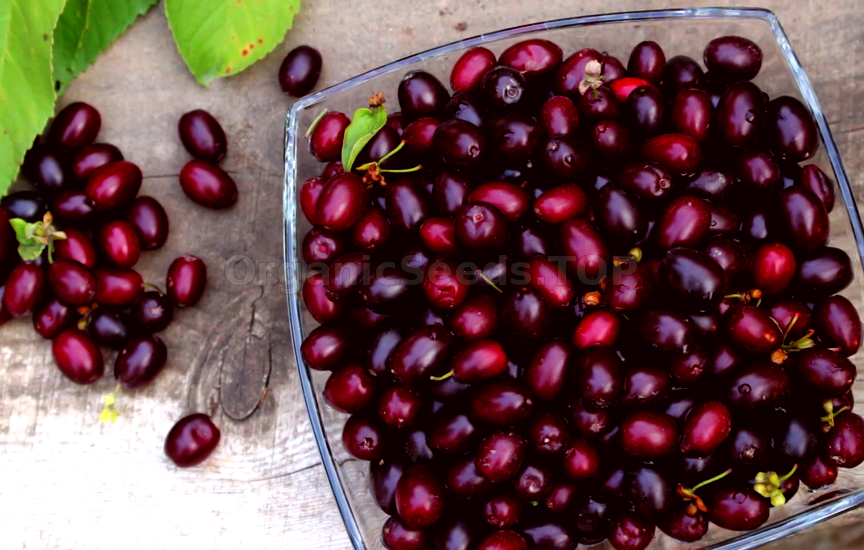 At maturity, it looks a bit like an elongated, bright red cherry and, in fact, its name references cherries, but it isn’t related to them at all. No, this isn’t a riddle. I’m talking about growing cornelian cherries. You may not be familiar with cornelian cherry cultivation and wonder what the heck is a cornelian cherry plant? Keep reading to find out how to grow cornelian cherry trees, uses for cornelian cherries and other interesting facts about the plant. 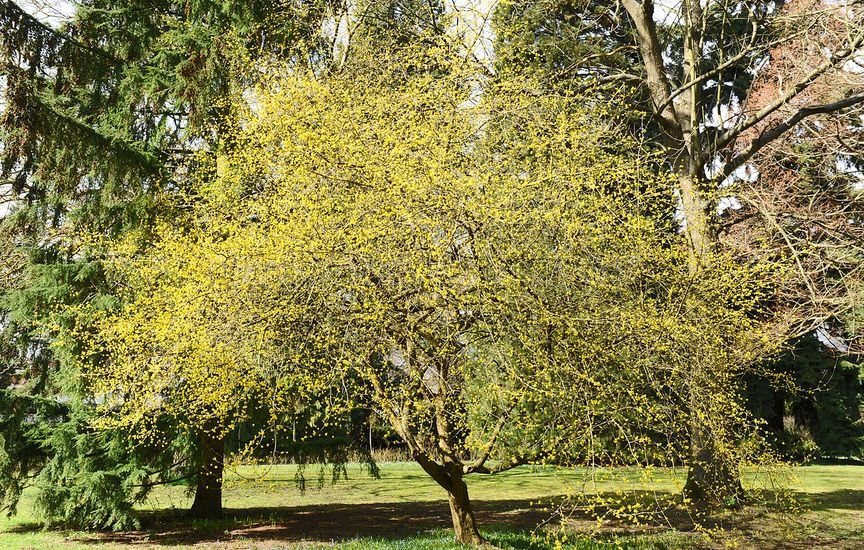 What is a Cornelian Cherry Plant? Cornelian cherries (Cornus mas) are actually members of the dogwood family and native to areas of Eastern Europe and Western Asia (they even survive in Siberia!). They are shrub-like trees that can grow up to 15-25 feet in height if left unpruned. The plant can live and be fruitful for up to 100 years. They bloom early in the season, even prior to forsythia, and bloom for an extended period of time, carpeting the tree in a yellow haze of tiny blossoms. The bark of the tree is flaky, gray-brown to brown. Bright green glossy leaves turn purplish-red in the fall. Are Cornelian Cherries Edible?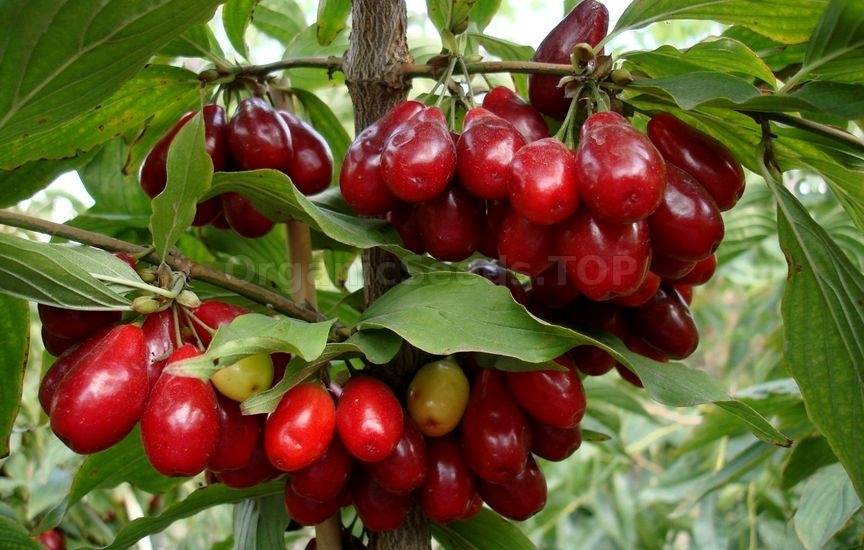 Yes, cornelian cherries are very edible. Although the plant is known primarily as an ornamental in the United States, ancient Greeks have been growing cornelian cherries for 7,000 years! The ensuing fruit is initially very tart and looks much like olives. In fact, the ancient Greeks pickled the fruit much like olives. There are actually a myriad of other uses for cornelian cherries such as for syrups, jellies, jams, pies and other baked goods. Russians even make it into a cornelian cherry wine or add it to vodka.
How to Grow Cornelian Cherry Trees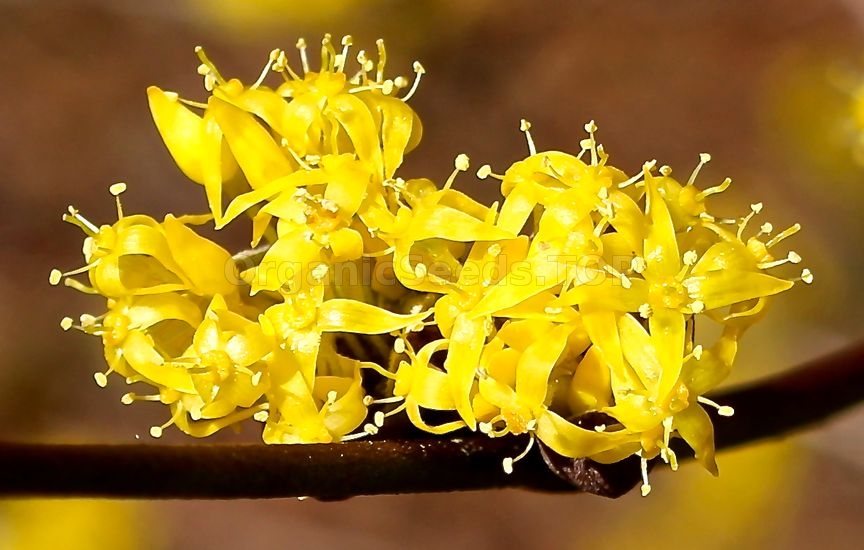 While historically significant, cornelian cherries have not been mass produced due to the elongated pit inside the fruit that is difficult to remove, as it is firmly entrenched in the pulp. More often, the trees are seen as ornamental specimens, popular and planted around the 1920’s.
Cornelian cherry cultivation is suited to USDA zones 4-8. The trees do best in full sun to part shade and while they do well in a variety of soils, they prefer fertile, well-draining soil with a pH of 5.5-7.5. This adaptable plant is winter hardy to -25 to -30 degrees F. (-31 to -34 C.). The tree can be pruned and trained into a single stemmed tree if desired and is primarily insect and disease resistant with the exception of dogwood anthracnose. Can I Grow Dogwood In a Container?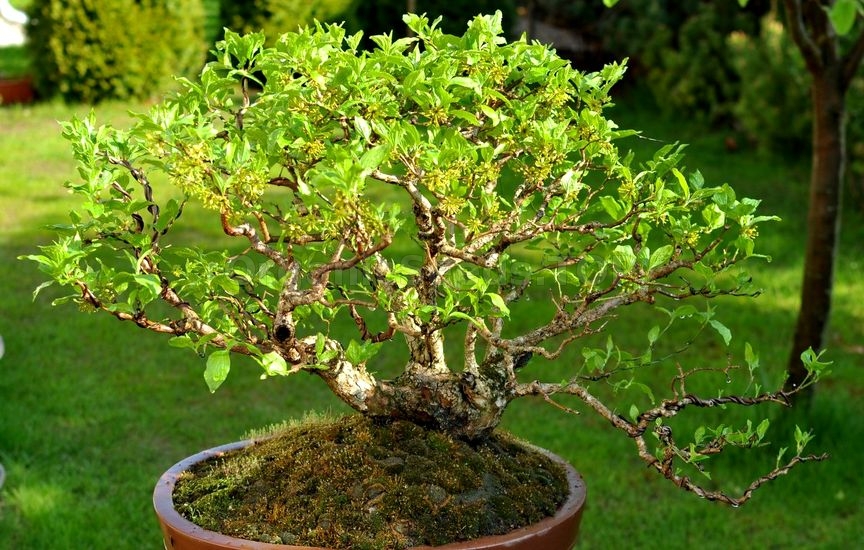 Technically, yes. It’s possible, but there are certain requirements to be met, and it’s not for the casual gardener. Dogwood trees have very dense, fast growing root systems that are less than ideal for container growing. They also need extremely well-draining soil, but at the same time the plants need lots of water, particularly in the first few years of life. Containers dry out quickly, so you’ll probably have to mulch heavily and water it every day or so.
How to Grow Dogwoods in a Container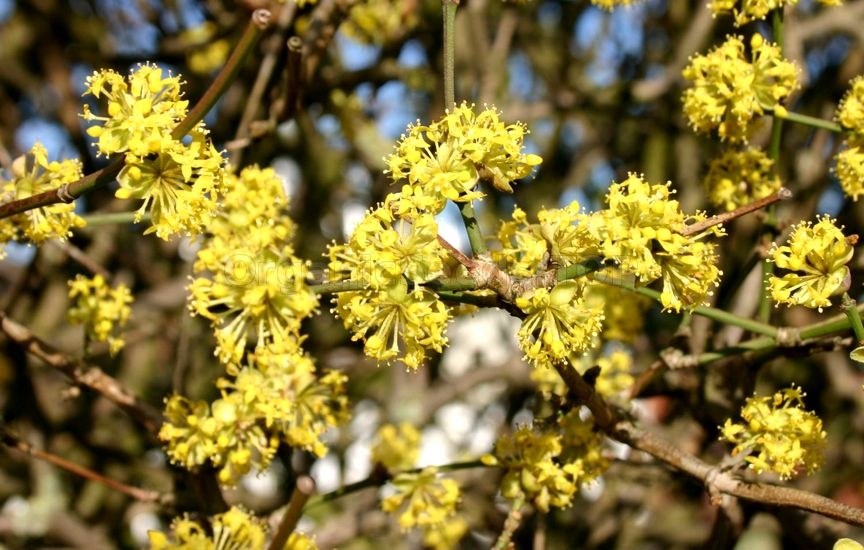 When growing dogwood trees in pots, it’s important to give the roots plenty of room. This means you should opt for as big of a container as you can manage. Even so, you’ll want to remove the tree from its container to prune the roots back on occasion to keep it from becoming root bound. Again, container grown dogwoods will require plenty of moisture so you’ll have to water the tree frequently. You can also add a bit of mulch to the top of the soil, which should help it retain some of that moisture. Caring for potted dogwood trees in the winter is also tricky. The plants need cold temperatures in order to go dormant during the winter. If you want to bring it inside, it’s best to put it somewhere protected but unheated, like a shed or a garage. 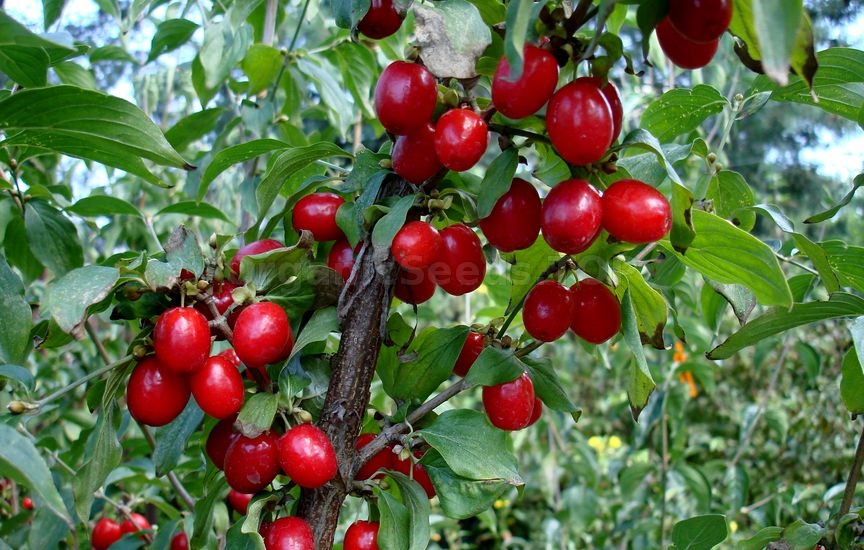 You may need:Organic Cornelian Cherry Seeds (Cоrnus mas)Organic Scarlet Hawthorn Seeds (Crataegus Coccinea)Organic Osage Orange Seeds (Maclura Pomifera)«Delta» - Organic Jacaranda SeedsOrganic Canadian Serviceberry Seeds (Amelanchier Canadensis) |
|
|
